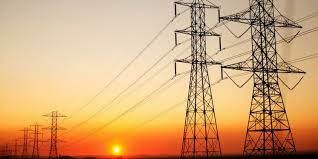The president of Benin Patrice Talon, candidate for the April 11 presidential election, showed determination to perpetuate his economic achievements, including the energy sector, where he managed to propel the country towards energy self-sufficiency
The energy sector is among those which progress best illustrates its governance performance. In 2016, the chronic electricity deficit, repeated power cuts and massive debts to neighbouring suppliers were an indicator of Benin’s malaise.
Five years later, these debts have been considerably reduced and the country has gone from an absolute dependence of “90 percent in 2016” to the beginnings of energy autonomy with its own installed capacity of 181.5 MW, covering about 60 percent of Benin’s current needs.
The campaign for the presidential election officially kicked off on 26 March at midnight. During his first meeting on 27 March, Talon set out his vision for this sector in front of his supporters, at Congress Centre in Cotonou.
“Before anything else, it was necessary to engage in a reform of the whole country, in all areas, in all sectors,” said Talon during his first official campaign “show,” stating the magnitude of the task that awaited him in 2016.
Five years later, he can boast of a solid economic record, as reflected in particular in the macroeconomic markers, the record growth rate achieved within the UEMOA zone (7 percent in 2019) and the progress in the energy sector.
In 2020, despite the Covid-19 pandemic and the consequences of the closure of the border with Nigeria, one of the country’s main trade and economic partners, the country was one of the few to maintain positive growth.
Diversification and capacity building
This recovery was first made possible by clearing debts to the Electrical Community of Benin (CEB) and neighbouring supplier countries (Nigeria and Ghana), amounting to more than USD73 million.
He initiated the revision of the agreement obliging the country to share its energy network with its neighbour, Togo, for the benefit of national development. In addition, taken on 27 November 2018 in Lomé, the decision to dissolve the CEB took effect on 25 March this year, putting an end to its single-buyer privileges as a joint structure for Benin and Togo.
The improvement is also the result of the strengthening of national production and distribution capacities and the modernisation of infrastructure with the construction in 2019 of the 127 MW Maria-Gléta 2 dual fuel thermal power plant, and the rehabilitation and re-commissioning of three existing small thermal power plants for 30 MW.
This result was achieved thanks to the adoption of a new Electricity Code and the establishment of a regulatory framework that is particularly conducive to the development of renewable energy, through the delegated management of the Beninese Electricity Company (SBEE).
In addition, the government has allowed the creation of the Beninese Company for the Production of Electricity (SBPE), which is responsible for producing electricity from public power stations before handing it over to SBEE, which will then have the task of distributing electricity.
2021, a year of major works
To further this dynamic, president Talon is committed to continuing and completing actions aimed at the country’s energy autonomy. This will include improving the electrical energy distribution network.
He favours the construction of a new 143 MW power station at Maria Gléta (which should be completed in early 2022) as well as solar power stations for a total capacity of 95 MW – already underway – the continuation of negotiations and actions for the construction of the 128 MW multifunctional hydroelectric dam known as Dogo-bis, on the Ouémé River.
In his presidential programme, Patrice Talon plans to add the construction of two distribution control centres (one national and the other regional), the construction of a floating storage and regasification terminal in the port of Cotonou to provide gas for the operation of the thermal power stations of Maria-Gléta and the continued improvement of SBEE’s management.
These priority projects have justified a sharp increase in the budget for 2021 (+30 percent compared to 2020), i.e. more than USD 108 million for a total of 25 major projects. The aim is to enable Benin to be self-sufficient by 2022 and to become an exporter of electrical energy to other countries in the sub-region.
AP/ls/lb/abj/APA


